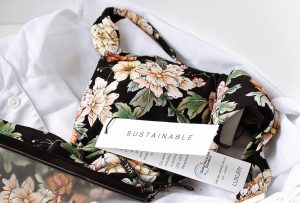Only 15% of consumers are concerned about the sustainability of the fashion industry, according to a report from Bain & Company and World Wildlife Federation Italy – but that number could shoot up to 50% in the next couple of years.
The report, called “How Brands Can Embrace the Sustainable Fashion Opportunity,” surveyed almost 6,000 consumers across France, China, Germany, Italy, Japan, the United States, and the United Kingdom. Over all, 65% of shoppers are concerned about sustainability as they shop. Of those surveyed, they generally fell into five categories: sustainability champions (15%), idealists (10%), good citizens (18%), shoppers (22%), and “indifferents” (35%).
Sustainability champions are those who are deeply concerned about fashion’s impact on the environment and are willing to pay up to 84% more for sustainable goods. Idealists, who are predominantly millennials, are concerned about the environment but don’t typically buy sustainable goods. Good citizens tend to be millennials and Gen Z members who like to look up brands’ sustainable tendencies online and are willing to pay up to 64% more for green products. Shoppers and indifferent consumers tend to be members of Generation X and older who either only see information about sustainable products and purchase them if they’re readily available and inexpensive or aren’t concerned with the environment and never buy sustainable.
However, the difference between what consumers say and what they do can sometimes be quite stark. This is what the report calls the “attitude-behavior gap.” Idealist consumers are those who say they care about the environment but do very little to pursue sustainable fashion. The gap is the widest when sustainable fashion is not made accessible, for instance if prices are unrealistically expensive, if consumers need to research brands online to verify their sustainability claims, or if they need to go out of their way to particular stores in order to buy sustainable goods.
The report also showed that consumers value high-quality products that are durable over long periods of time, as they lessen the environmental impact of throwing away items to acquire new ones frequently. The longer the product’s lifetime, the more consumers consider it sustainable.




















